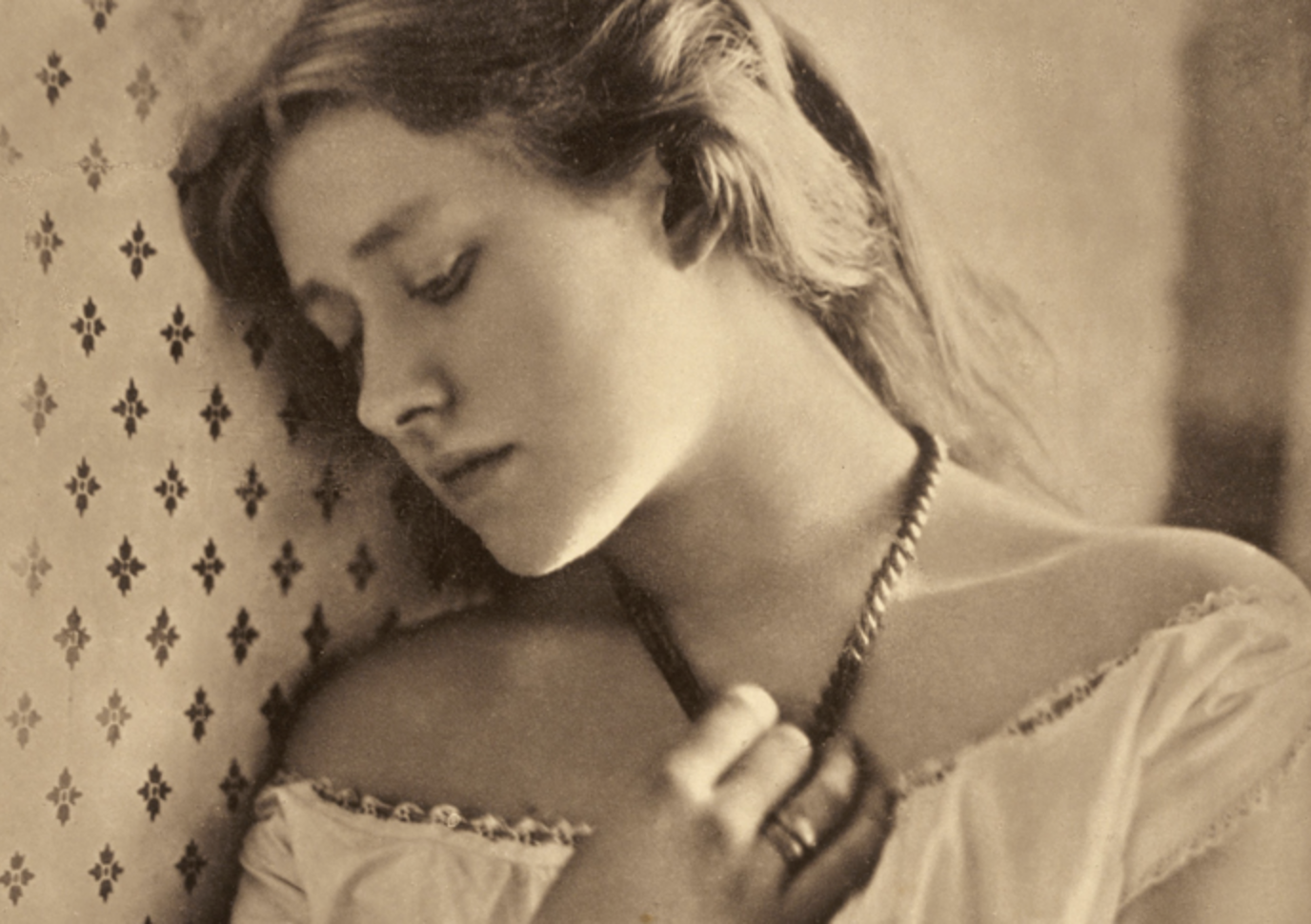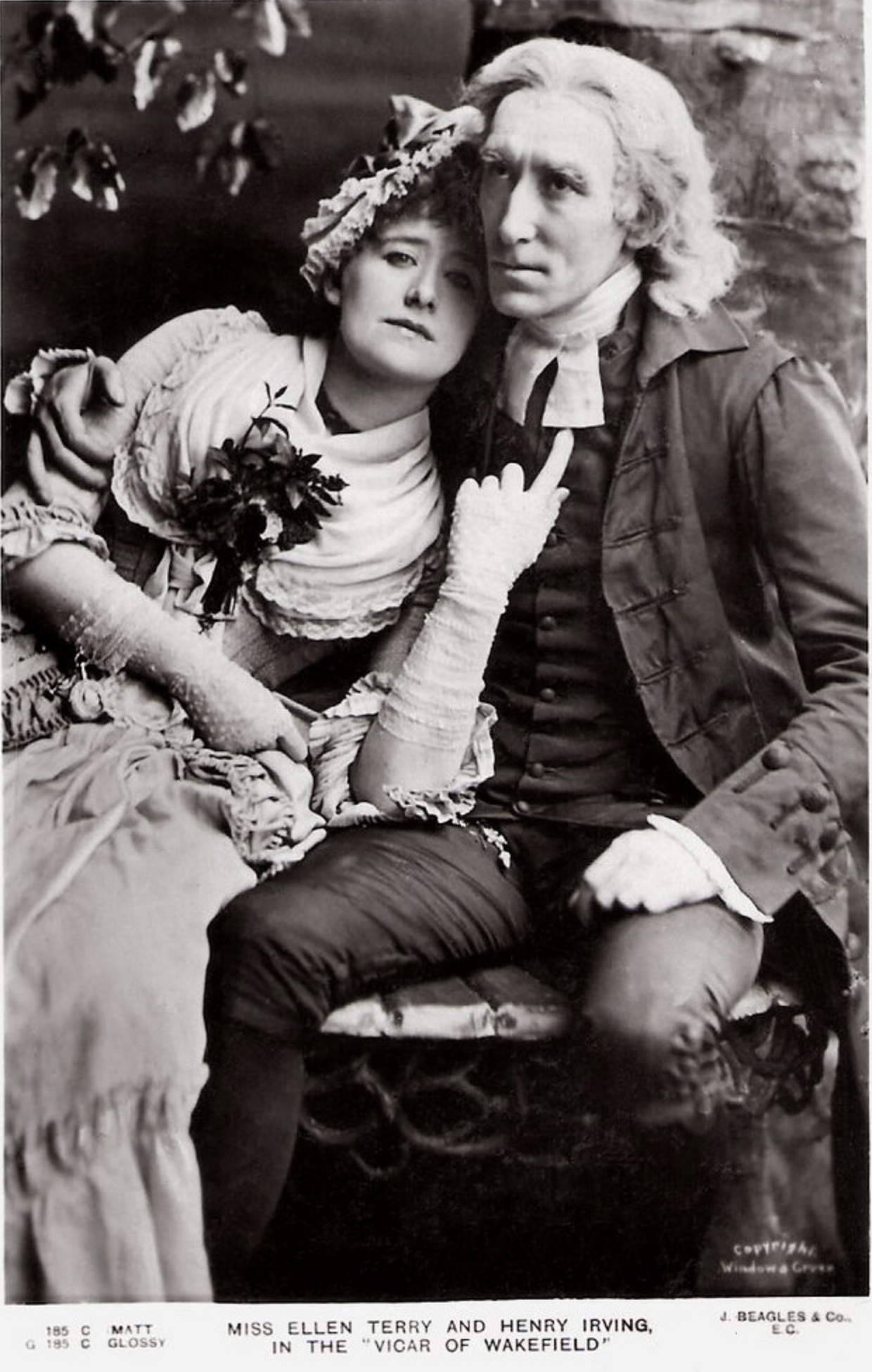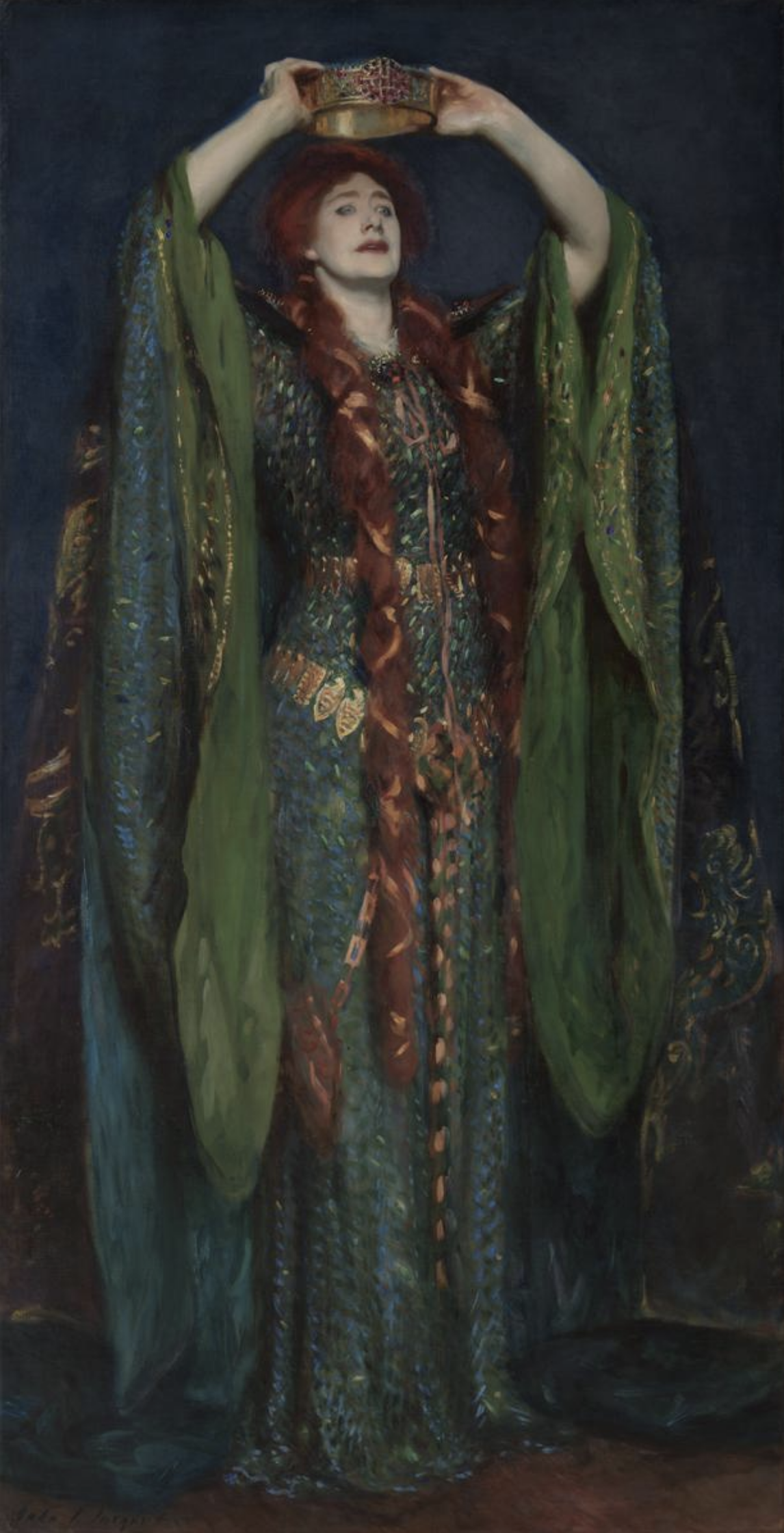Ellen Terry: ‘All Divine Things Run on Light Feet’
Julia Margaret Cameron’s photograph of Ellen Terry at the age of 16
Ellen: I’ve never understood why ‘theatrical’ should be a term of abuse… Nobody says of music that it’s too musical, why then do they say of theatre that it’s too theatrical?
Recently, I very much enjoyed ‘Grace Pervades’, a new play by David Hare that reflects on the nature of theatre and the acting life. (The Theatre Royal, Bath. Now over, but there’ll be a London transfer to the Theatre Royal, Haymarket from April 2026.)
Irving: Did you know that in Shakespeare there are seventeen ‘no’s to every one ‘yes’?... All his power is in the negative.
We meet Henry Irving (Ralph Fiennes), the towering figure of the nineteenth century British stage. He is lofty, awkward and gloomy, has a leg that drags slightly, and a deep voice that pronounces ‘god’ as ‘gud.’
Irving: My critics accuse me of being dour… An evening in my company can on occasions be very grim.
Irving has built his formidable reputation on Shakespearean tragedies and historical pageants. And he is rather dismissive of modern writers like Ibsen, Strindberg and Shaw.
Irving: Too small. Too petty. Not large enough… People arguing isn’t theatre. People making points.
Irving, planning to establish a new theatre company at the Lyceum in London (‘A company of equals in which I am the boss.’), enlists Ellen Terry (Miranda Raison) to join his players. She, by contrast with the great actor-manager, is cheerful, spontaneous and talkative; and her performing style is light, airy and understated.
Ellen: People say, ‘Oh she’s so natural,’ as if I were making no effort. It infuriates me…They don’t seem to realise floating is a technique.
Terry refuses to be a slave to tradition. In preparation for playing Ophelia, she visits an asylum, and she proposes to break with convention by playing her mad scene in white. She also tries to persuade Irving to put on more of Shakespeare’s comedies.
Ellen: Nobody needs to be told that life is terrible. They know it already. Tragedy is for people who don’t understand life and need it explained to them. Comedy is for those who already know.
Though very different characters, with very different approaches to their craft, Irving and Terry strike up an enduring partnership, which makes the Lyceum venture a roaring success. Terry is even emboldened to offer Irving some advice.
Ellen: I have a feeling that your acting could be improved if from time to time you directed your gaze at the other actor.
I was taken with Terry’s description of her own naturalistic acting style.
Ellen: I put in just as much effort as anyone else, but I aim to excel at not letting it show.
For Terry, ease, grace and spontaneity are fundamental to her technique.
Ellen: Myself, I never leave the dressing room till the last possible moment. I put down the newspaper I am reading, or the light novel, I fly down the stairs, sometimes I confess I even take the banisters, and then at the last possible moment – I pass. I pass from one world to another. I cross the invisible line between the real world and the imagined.
In the field of commerce, it’s quite common for executives to make very public displays of their effort and industry. Confronted with a crisis, they are overwrought, melodramatic, histrionic. Their stress is contagious, their pessimism infectious. And inevitably they have an adverse impact on morale.
Ellen: I don’t regard actors who sweat and spit as especially accomplished. Grunting and heaving. That kind of behaviour belongs more properly on a building site.
I have always admired those who display calm under pressure, who radiate positivity and poise; cool-headed confidence and serene unflappability. I worked for many years at BBH with the incomparable Jon Peppiatt. He made every problem seem soluble, every barrier passable, every goal possible. As AA Gill wrote of the work of PG Wodehouse:
‘Success is not achieved, it is underachieved.’
John Singer Sargent, Ellen Terry as Lady Macbeth, 1889, Tate Britain, London, UK.
Henry Irving is widely credited with making theatre respectable in Britain. A hard taskmaster, at the Lyceum he raised standards of both performance and staging, significantly increasing the numbers of actors, stagehands and designers. Motivating his staff with better pay and lavish parties, he was also a master of publicity, cultivating the press and royalty. In 1895 he became the first actor to be awarded a knighthood. He died in 1905, aged 67, having suffered a stroke at the end of a performance of Becket at the Theatre Royal, Bradford. Legend has it that his last lines on stage were ‘Into thy hands, O Lord, into thy hands.’
Ellen Terry was Irving’s leading lady for more than two decades. Touring extensively with him in Britain and America, she was much loved by the public, and was immortalised in a painting by Sargent. After Irving’s death, she performed the plays of Shaw and Ibsen, appeared in silent films and lectured on Shakespeare’s heroines. Her career lasted nearly seven decades. She is particularly remembered for her naturalistic style. In ‘Grace Pervades’ she quotes Friedrich Nietzsche:
‘All divine things run on light feet.’
'On the roller coaster ride
That my emotions have to take me on,
I heard a newborn baby cry
Through the night.
I heard a perfect echo die
Into an anonymous wall of digital sound,
Somewhere deep inside
Of my soul.
A natural beauty should be preserved like a monument to nature.
Don't judge yourself too harsh, my love.
Or someday you might find your soul endangered.
A natural beauty should be preserved like a monument to nature.’
Neil Young, 'Natural Beauty'
No. 530


